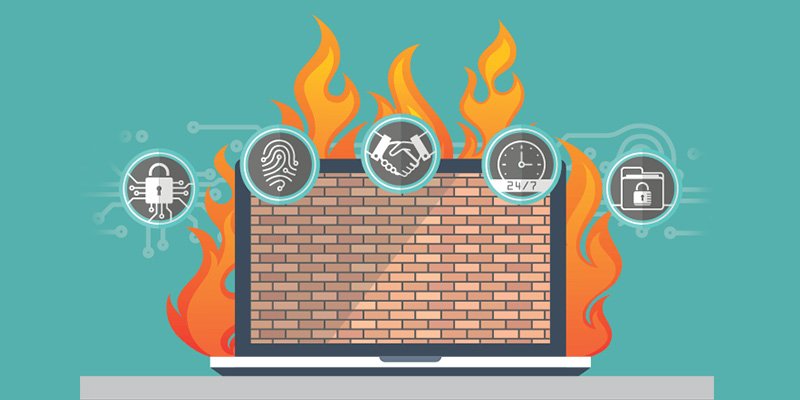Hardware vs. Software Firewalls: Making the Right Choice for Your Business
Introduction to Firewalls
In today’s digital landscape, protecting your business from cyber threats is more critical than ever. Firewalls play a crucial role in safeguarding your network. When deliberating between hardware versus software firewalls, understanding their differences is essential. This article will help you demystify these options and guide you to the best decision for your business needs. With the increasing sophistication of cyber threats, employing the proper firewall is not just a recommendation but necessary to ensure your business’s longevity and security.
Firewalls act as the first line of defense, monitoring and controlling incoming and outgoing network traffic based on predetermined security rules. A hardware firewall is a physical device between your network and the internet, providing robust protection by filtering traffic before it reaches your internal systems. In contrast, a software firewall is installed directly on individual devices, offering more granular control over application-level security. Both types have advantages, and the choice between them often depends on the size of your business and the complexity of your network. As cyber threats evolve, a comprehensive understanding of firewall technology is essential for building a resilient security posture that can adapt to new challenges.
What Are Hardware Firewalls?
Hardware firewalls are dedicated devices designed to protect your network by filtering traffic before it enters. They operate at the network’s perimeter and act as gatekeepers, examining incoming and outgoing data packets against predetermined security criteria. They tend to be more robust and secure compared to software solutions. One downside, however, is their cost and the technical expertise required to manage them. Nevertheless, for larger enterprises that handle vast amounts of sensitive data, the investment in a hardware firewall is often justified by its advanced protection capabilities.
Features and Benefits of Hardware Firewalls
- Superior Performance: Hardware firewalls generally offer better performance because they are designed to handle high traffic volumes without slowing down your network. Unlike software firewalls that might drain system resources, hardware firewalls are built to manage enormous data loads efficiently.
- Enhanced Security: These firewalls are physically separate from other network operations, making them less vulnerable to attacks. Standalone devices are more easily compromised than software firewalls can be when residing on the same system they are protecting.
- Scalability: Hardware firewalls can handle large networks and are easily scalable to fit the needs of growing businesses. As your company expands and adds more servers and users, hardware firewalls can be upgraded to accommodate increased traffic seamlessly.
Limitations of Hardware Firewalls
- Cost: Initial setup and maintenance of hardware firewalls can be expensive. They require a higher upfront investment and ongoing maintenance costs, including updates, physical security, and potential technical support services.
- Complexity: Implementing and managing hardware firewalls requires technical expertise that might be limited to small or medium-sized enterprises. Specialists might need to be hired, further increasing costs and complicating operations.
What Are Software Firewalls?
Software firewalls are programs installed on individual computers or servers that monitor and control incoming and outgoing network traffic based on predetermined security rules. These types of firewalls can be tailored to provide robust protection for personal computers or small networks. Their flexibility and cost-effectiveness make them an appealing choice for smaller businesses or individual users who do not require the extensive protection of hardware firewalls.
Features and Benefits of Software Firewalls
- Cost-Effective: Generally less expensive than hardware firewalls, making them ideal for small to mid-sized businesses. This lower cost doesn’t necessarily equate to less security; software firewalls can offer comprehensive protection for smaller operations.
- Ease of Use: Software firewalls are easier to install and configure, often not requiring specialized expertise. User-friendly interfaces and automated update features make them accessible even to those without a deep background in IT.
- Flexibility: These firewalls can be customized for particular applications and network environments. Whether you’re running a small business or need protection for personal devices, software firewalls offer settings that can be adjusted to fit specific security needs.
Limitations of Software Firewalls
- Performance: Since software firewalls utilize system resources, they may slow down the host system, especially under heavy network load. This can be a significant drawback for environments where system performance is critical.
- Security: Software firewalls can be more susceptible to attacks if not regularly updated. Unlike hardware firewalls, software solutions require constant monitoring and updates to address new vulnerabilities and ensure continued protection.
Choosing the Right Firewall for Your Business
The best choice between hardware and software firewalls depends on your specific business needs, budget, and level of technical expertise. For instance, if your business handles a large amount of sensitive data, a hardware firewall might be more appropriate due to its advanced security features. These robust devices will offer your business the peace of mind needed to operate without constant fear of breaches. Conversely, for smaller companies or individual users, a software firewall might provide adequate protection at a lower cost without the complexities and maintenance requirements associated with hardware solutions. Software firewalls’ flexibility and user-friendly nature make them a practical choice for less technically savvy users.
Conclusion
In conclusion, both hardware and software firewalls offer distinct advantages and disadvantages. The key to choosing the proper firewall lies in understanding your specific business needs and weighing the costs and benefits of each option. For larger enterprises handling sensitive data, hardware firewalls provide robust, scalable solutions worth the investment. Software firewalls offer a cost-effective and flexible alternative for smaller businesses or individual users. Making an informed decision can ensure your network remains secure and your business operations run smoothly. Whether you opt for hardware, software, or a combination, the correct firewall is essential to your cybersecurity strategy.






